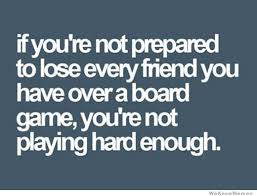INTRODUCTION
In my last post I was looking at the battle between the FBI and Apple, essentially a battle between security and freedom. To take this argument a bit further, another topical debate revolves around Edward Snowden – the well-known whistle-blower. Hero for some, traitor for many others, but which is the right classification – and do both sides of the argument have valid points?

THE LIFE OF SNOWDEN
To begin with – Edward Snowden was born in 1983. After working for the USA’s Central Intelligence Agency (CIA) and Dell, Snowden was hired by Booz Allen Hamilton – a well-known National Security Agency (NSA) contractor. He left his job in May 2013, before a month later revealing thousands of classified NSA documents to journalists – with the story subsequently being picked up by worldwide media outlets. Needless to say, he had fled USA at this point, with the American’s hunting him for revealing classified information. The information revealed several privacy intrusions that the general public had been unaware of, what many saw as amounting to ‘spying’. He is currently holed up in an unknown location in Russia, having been granted three years asylum there. To some, Snowden’s actions made him a hero, but to others, he is a traitor.
HERO?
As mentioned previously, many people see Snowden as a hero. Knowing the consequences of such a move, Snowden left everything he had behind him when he left USA. He was in a well-paid job, surely had friends around him and certainly family – all really what anyone needs. And yet he felt he could leave all of this behind. It goes to show what he believed in was very strong. This overall could be seen as a selfless act, putting himself at risk for the good of others. There is no doubt a difficult life awaits him in the future. Furthermore, it could be agreed that the public had a right to know – it can be quite disconcerting knowing that your movements and data are being analysed by others. The sheer scale of the revelations were quite unprecedented, with this another reason for the support of Snowden.
TRAITOR?
The other side of the argument suggests he was a traitor. Whenever the argument between privacy and security comes up, there is always one question – asking if the person in question has nothing to hide, why should they be worried. This means that the public shouldn’t worry about surveillance if they have done nothing wrong. Others have suggested he was seeking publicity, with some comparisons being made to Julian Assange – linked to WikiLeaks. Moreover, there is the security issue. Terrorism is such an issue nowadays, that surveillance is necessary. Government officials can be damned if they do, damned if they don’t when it comes to surveillance. Surely, it is for the best if surveillance is done and leads to lives being saved. Finally, Snowden was trusted with sensitive information, and there are many others in similar positions, but while they have stayed loyal, he didn’t – leading to more weight for this argument.
WHICH IS CORRECT?
Neither argument is conclusive. The debate will rage on for many years to come, with the security versus privacy battle sure to continue for a long time yet. There are very good sides to both arguments. Public perception is normally split, with many people believing what Snowden did was good for society, with others suggesting the contrary. Overall, the key part of this argument that I would highlight is the before-mentioned potential of lives being saved through surveillance. This, coupled with the question over having nothing to hide, leads to question marks being raised over privacy issues. But, there are obviously ethical concerns regarding privacy that cannot be forgotten.
CONCLUSION
This is another interesting case. The revelations made by Snowden have had a wide-ranging impact. The Apple and FBI case shows that the Snowden case will forever be germane to the topic of privacy and security. It is near-impossible to make a fair judgement on this case, with everyone entitled to their opinion. Whatever the result is, there is no doubting the impact that Snowden has had on the world, whether or not that is a good thing, remains to be seen.
/MF/
(‘073’)
Thanks for reading, and again to my followers. I wish everyone reading this a Happy day.















